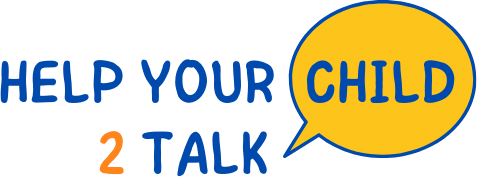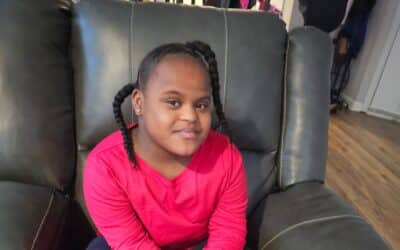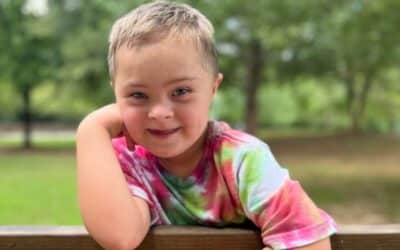Speech and language development are central to child development. While these two terms are often used interchangeably, they actually refer to two distinct aspects of communication. In this article, we will describe in detail how speech and language are different and give clear examples of each.
Speech
Speech development refers to the process of learning to produce the sounds that make up language. It involves the coordination of breathing, voice production, and the movement of the lips, tongue, teeth, palate, and jaw to produce intelligible speech. This process begins in infancy, as babies start to babble and experiment with the sounds they can make.
Examples
- Babbling: This is the stage where babies produce sounds without any meaning, like “ba-ba” or “ma-ma.”
- Cooing: This is the stage where babies produce vowel-like sounds, like “oooh” or “aaah.”
- First Words: This is when babies start to produce their first true and meaningful words by combining consonants with vowels, like “mama” or “dada.”
- Production of clear words and connected speech: Using words to form understandable words, phrases, sentences, and to engage in conversation.
Language
Language development refers to the process of learning and using a system of communication that involves words, grammar, and syntax to convey meaning. This includes understanding and using words, as well as understanding and using the rules of grammar and syntax to form sentences.

Examples
- Understanding words: This is when babies start to understand the meaning of words, like “milk” or “juice.”
- Using words: This is when babies start to use words to communicate, like saying “more” or “no.”
- Understanding grammar: This is when children start to understand the rules of grammar and how they influence meaning, like adding “-ing” to the end of a verb to indicate an action is happening now.
- Using grammar: This is when children start to use the rules of grammar to form sentences, like saying “I am going to the store.”
Differences between Speech and Language Development
While speech and language development are related, they are not the same thing. Speech development refers to the production of sounds, while language development refers to the use of words, grammar, and syntax to convey meaning. Children can have delays or disorders in one or both of these areas.
Comparison Table of Speech, Receptive Language, Expressive Language, and Pragmatic Language
| Speech | Receptive Language | Expressive Language | Pragmatic Language |
| Refers to the production of sounds. | Refers to the ability to understand language. | Refers to the ability to use language to express oneself. | Refers to the ability to use language in social situations. |
| Examples include babbling, cooing, first words, single words, and connected speech. | Examples include understanding words, following directions, and responding to questions. | Examples include using words to communicate, understanding and using grammar and syntax, having a conversation and telling stories. | Examples include using language to initiate and maintain conversations, using appropriate body language, tone of voice, and social rules. |
How You Can Help Your Child
While speech and language are different, language interactions impact both. There are several things you can do to help your child with their development:
- Talk with your child: The more you talk with your child in a meaningful way, the more opportunities they have to learn language. Describe what you’re doing, ask them questions (even if they can’t answer yet), and encourage their efforts to communicate.
- Point out important vocabulary: Show your child their world, allow them to safely explore, and emphasize the names of important people, objects, and actions.
- Read to your child: Reading to your child is a great way to expose them to new words and concepts.
- Play with your child: Play is an important way for children to learn language. Play games that involve modeling, imitating, taking turns and using sounds and language to communicate.
- Sing and dance: Music, movement and rhythm promote memory, imitation, interaction, sound production, vocabulary and other language skills.
- Seek help if you have concerns: If you’re concerned about your child’s development, talk to their pediatrician and a speech-language pathologist.
Summary/Conclusion
In conclusion, speech development and language development are two distinct aspects of communication. Speech development refers to the precise production of sounds to form words and series of words, while language development refers to the use of words, grammar, syntax, and social norms to convey meaning and interact. By understanding these differences, parents can more effectively help their child develop in these important areas of communication.
FAQs
- What are some common speech disorders?
- Some common speech disorders include articulation disorder, stuttering, apraxia of speech, and dysarthria.
- What is the difference between a speech disorder and a language disorder?
- A language disorder involves difficulties with the understanding or use of language, while a speech disorder involves difficulties with the production of speech sounds.
- When should I be concerned about my child’s communication development?
- You should seek professional guidance if your child is not meeting developmental milestones, if you notice that their speech and/or language skills are significantly behind or different from those of their peers, and/or if you feel that they are struggling to communicate.
- How can I help my child with communication development at home?
- Consistently talking with your child about what they are experiencing, sharing picture and story books, emphasizing and repeating important words in different contexts, using visual cues, and adding language while playing with them are all great ways to help support their speech and language development.




0 Comments